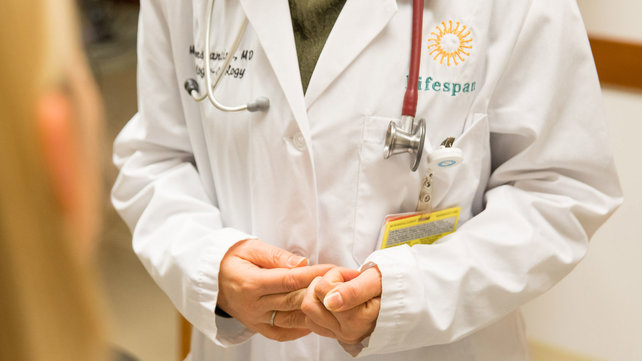Substance Use in Teens: An Expert's Top Advice

Teen substance use is a growing concern that impacts families, schools, and communities nationwide. While experimentation with drugs or alcohol may seem like a rite of passage to some, the consequences can be far-reaching. Understanding the factors that contribute to substance use, its potential risks, and the strategies for prevention is crucial in helping young people navigate this critical stage of life.
The unique characteristics of teen substance use
Following the pandemic, overall teen substance use has declined and remains steady, which is a positive trend. However, many teens still engage in substance use, with alcohol being the most common. By high school graduation, about half of teens will have tried alcohol, and around one-third will have experimented with marijuana or cannabis.
Teen substance use differs from adult substance use, as it is primarily driven by social factors rather than genetic risks. Availability, access, and social context play key roles in whether teens experiment with substances. However, teens with co-occurring mental health issues are more likely to escalate their use, struggle more with substance dependence, and find it harder to cut back or quit compared to their peers without mental health challenges.
More than 90 percent of teens seeking treatment for substance use also have a co-occurring mental health condition. In our work with teens and their families, we address both.
Recognizing the signs of drug or alcohol use in teens
Caregivers often struggle to distinguish typical teenage experimentation from signs of concern. While some teens do try substances, it's a misconception that most or all do. Over half graduate from high school without using them.
Substance use isn’t necessarily a typical part of adolescence, but when combined with noticeable changes may signal a deeper issue. These changes could include:
- shifts in peer groups
- declining school performance
- trouble at school
- mood changes
- withdrawal from family
- loss of interest in activities
These behavioral changes could indicate substance use or another underlying concern, warranting closer attention or professional support.
Creating a safe space to talk about substance use
Creating a nonjudgmental space, either in the home or a more “neutral” location such as a therapist’s office, allows for open conversations about substance use. Avoiding stigma and framing substance use as more than just rule-breaking behavior can help teens feel comfortable discussing their experiences and challenges. This approach fosters trust and encourages honest dialogue, making it easier for teens to seek guidance and support.
How we react to our teens when we have concerns or in discussing substance use is critical, but it can be challenging. Understandably, parents can sometimes be very worried or very stressed. Parents also have many other things going on in their lives besides parenting. Finding a place where you're able to have a calm and open conversation takes work but can be very rewarding for your relationship with your teenager.
Getting started with treatment
The goal in treating substance use and other issues is to ensure teens struggling with substance use receive the best possible care. Finding appropriate treatment can be challenging due to a national treatment gap. Teens require developmentally-tailored approaches rather than adult-focused treatments, especially when co-occurring issues are present. Parents must navigate both the type and level of care needed, making access to the right resources crucial.
As a parent, you may have an idea about residential treatment for substance use and if it is truly needed. Very often it's not needed. There are various levels of care available and what meets or matches your child's needs at this point can vary. Reach out to your child’s pediatrician, or if your child is in counseling or working with a psychologist or other mental health provider, start that dialogue with their provider and share your concerns.
What does substance use treatment for teens involve?
Effective treatment for teen substance use includes approaches like motivational interviewing and skill-building to help them cope without substances. Research shows that while various treatments work better than no treatment, those that involve caregivers and families tend to yield the best outcomes. There is no one-size-fits-all approach, but equipping caregivers with the right tools to support their teen is a crucial part of successful intervention.
When you're addressing both the mental health component as well as the substance use in tandem, using best practices or evidence-based treatments ensures we get the best outcomes. Working with a team of people who are prepared and skilled in addressing all those considerations is ideal.
Value of the Vista program at Bradley Hospital
The Vista program, launched in 2017, provides evidence-based care for teens with co-occurring mental health and substance use issues. The program includes group, individual, and family-based therapy, along with medication management when appropriate. Meeting three afternoons a week, it allows teens to receive treatment without disrupting school, and they can remain in the program as long as needed to reach their treatment goals. For more information about Bradley Vista or to schedule an appointment, please visit the Vista website or call 401-432-1695.

About the Author:
Robert Miranda Jr., PhD, MEd
Dr. Robert Miranda, Jr., (he/him) is the founder and director of Vista at Bradley Hospital and a board-certified clinical psychologist. The Vista program is the region's premier teenage substance use and mental health treatment service and training clinic.
Bradley Vista

Vista at Bradley Hospital is a specialized intensive outpatient program that provides comprehensive evaluation and intensive treatment for adolescents with co-occurring mental health and substance use concerns.
Find a Doctor

The right provider is in our network
Search more than 1,200 providers in our network.




